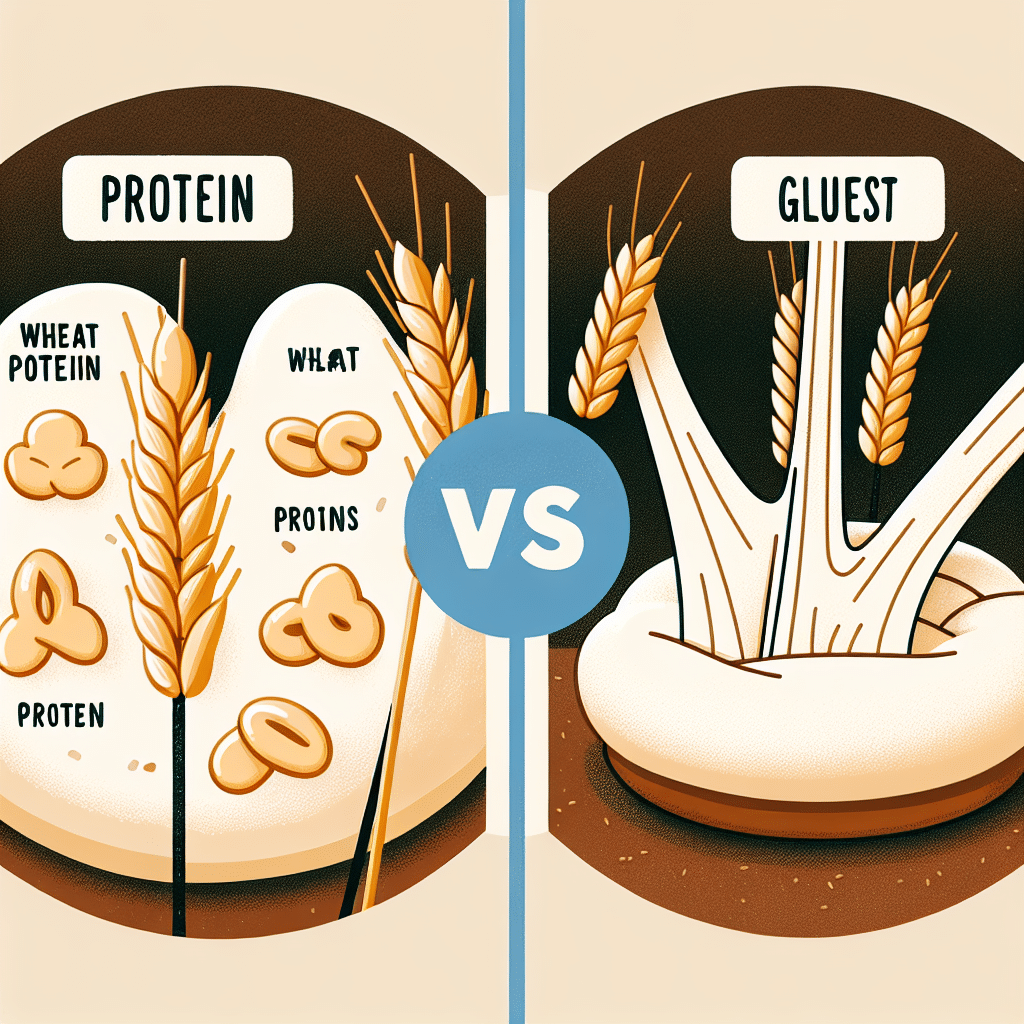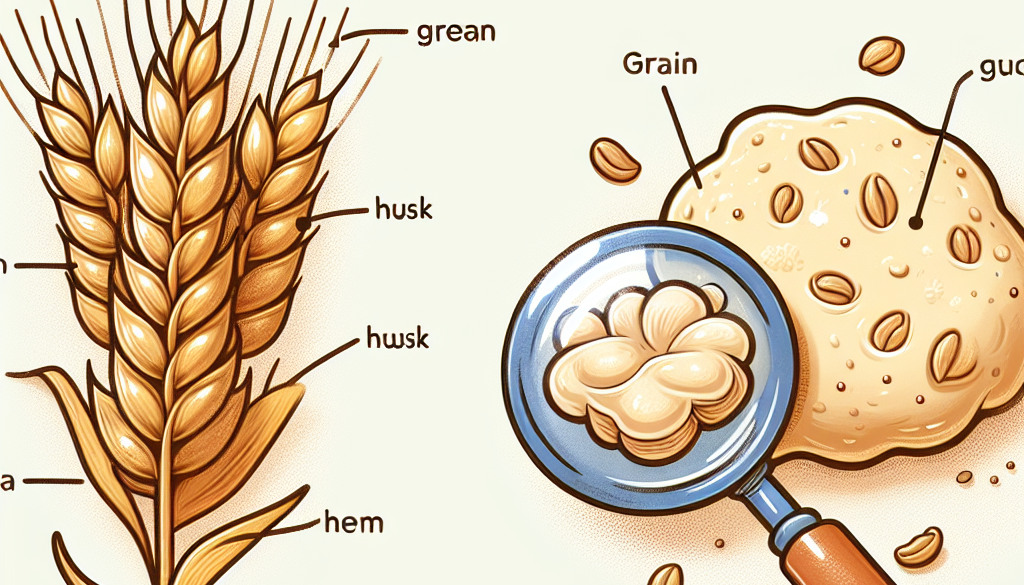Is Wheat Protein The Same As Wheat Gluten?
-
Table of Contents
- Wheat Protein vs. Wheat Gluten: Understanding the Differences
- What is Wheat Protein?
- What is Wheat Gluten?
- Comparing Wheat Protein and Wheat Gluten
- Uses in Food Production and Dietary Supplements
- Health Considerations and Dietary Restrictions
- Case Studies and Statistics
- Conclusion: Key Takeaways
- Discover ETprotein’s High-Quality Protein Products
Wheat Protein vs. Wheat Gluten: Understanding the Differences

When it comes to baking, cooking, and dietary considerations, the terms “wheat protein” and “wheat gluten” are often used interchangeably. However, while they are related, they are not the same thing. This article will delve into the distinctions between wheat protein and wheat gluten, their uses, benefits, and potential drawbacks. We will also explore how these components of wheat impact various diets and food products.
What is Wheat Protein?
Wheat protein, also known as wheat protein isolate, is a dietary supplement that is derived from wheat. It is created by removing the starch from wheat flour, leaving behind a high concentration of protein. This protein is then dried and powdered to create a supplement that is rich in protein but low in carbohydrates.
- Wheat protein is often used by bodybuilders and athletes to increase their protein intake without adding a lot of carbohydrates to their diet.
- It is also used in the food industry as a meat substitute or to enhance the protein content of various products.
What is Wheat Gluten?
Wheat gluten, on the other hand, is the natural protein found in wheat. It is what gives dough its elasticity and helps it rise and keep its shape. Gluten is a mixture of two primary proteins: gliadin and glutenin.
- When flour is mixed with water, these proteins form a sticky network that is often referred to as gluten.
- It is this network that traps air bubbles and allows bread to rise.
- Wheat gluten is also used as a meat substitute, known as seitan, which is popular in vegetarian and vegan diets.
Comparing Wheat Protein and Wheat Gluten
While wheat protein and wheat gluten come from the same source, they are processed differently and have different properties and uses.
- Composition: Wheat protein isolates are processed to remove most of the carbohydrates and fats, leaving behind a product that is up to 90% protein. Wheat gluten, however, contains a lower percentage of protein because it still includes some carbohydrates and fats.
- Functionality: Wheat gluten provides elasticity and structure in baked goods, which is essential for bread and other yeast-leavened products. Wheat protein isolates do not provide the same baking properties but are used to increase the protein content without affecting the texture significantly.
- Dietary Considerations: For individuals with celiac disease or gluten sensitivity, both wheat protein and wheat gluten should be avoided as they contain gluten. However, for those looking to increase their protein intake, wheat protein isolates can be a valuable supplement.
Uses in Food Production and Dietary Supplements
Both wheat protein and wheat gluten have unique applications in food production and dietary supplements.
- Wheat Protein: It is often found in protein bars, shakes, and other dietary supplements. It is also used in low-carbohydrate bread and pasta products.
- Wheat Gluten: It is primarily used in baking to improve the texture and rise of bread. It is also the main ingredient in seitan, a popular vegan meat substitute.
Health Considerations and Dietary Restrictions
When it comes to health considerations and dietary restrictions, it is important to understand how wheat protein and wheat gluten fit into various diets.
- People with celiac disease or non-celiac gluten sensitivity must avoid both wheat protein isolates and wheat gluten due to their gluten content.
- Those following a low-carbohydrate or ketogenic diet may opt for wheat protein isolates to increase their protein intake without adding carbs.
- Vegans and vegetarians may use wheat gluten as a protein-rich meat alternative.
Case Studies and Statistics
Several studies have highlighted the importance of understanding the differences between wheat protein and wheat gluten:
- A study published in the Journal of Cereal Science found that wheat protein isolates could be used to enhance the nutritional profile of gluten-free bread, making it a potential option for those with celiac disease.
- Research in the International Journal of Food Sciences and Nutrition has shown that seitan, made from wheat gluten, can be a nutritious part of a plant-based diet when combined with other protein sources.
Conclusion: Key Takeaways
In summary, wheat protein and wheat gluten are related but distinct products derived from wheat. Wheat protein isolates are a concentrated form of protein ideal for increasing protein intake, while wheat gluten provides the unique properties necessary for baking and is a staple in many vegetarian diets. Understanding the differences between these two can help consumers make informed dietary choices and food producers create suitable products for various needs.
Discover ETprotein’s High-Quality Protein Products
If you’re looking for high-quality protein products, ETprotein offers a range of organic bulk vegan proteins that cater to diverse industries. Their products, including wheat protein, are characterized by a neutral taste, non-GMO, allergen-free attributes, and high purity levels. Whether you’re in the nutraceutical, pharmaceutical, or food and beverage industry, ETprotein can meet your protein needs with their extensive product range.
About ETprotein:
ETprotein, a reputable protein and L-(+)-Ergothioneine (EGT) Chinese factory manufacturer and supplier, is renowned for producing, stocking, exporting, and delivering the highest quality organic bulk vegan proteins and L-(+)-Ergothioneine. They include Organic rice protein, clear rice protein, pea protein, clear pea protein, watermelon seed protein, pumpkin seed protein, sunflower seed protein, mung bean protein, peanut protein, and L-(+)-Ergothioneine EGT Pharmaceutical grade, L-(+)-Ergothioneine EGT food grade, L-(+)-Ergothioneine EGT cosmetic grade, L-(+)-Ergothioneine EGT reference grade and L-(+)-Ergothioneine EGT standard. Their offerings, characterized by a neutral taste, non-GMO, allergen-free attributes, with L-(+)-Ergothioneine purity over 98%, 99%, cater to a diverse range of industries. They serve nutraceutical, pharmaceutical, cosmeceutical, veterinary, as well as food and beverage finished product distributors, traders, and manufacturers across Europe, USA, Canada, Australia, Thailand, Japan, Korea, Brazil, and Chile, among others.
ETprotein specialization includes exporting and delivering tailor-made protein powder and finished nutritional supplements. Their extensive product range covers sectors like Food and Beverage, Sports Nutrition, Weight Management, Dietary Supplements, Health and Wellness Products, and Infant Formula, ensuring comprehensive solutions to meet all your protein needs.
As a trusted company by leading global food and beverage brands and Fortune 500 companies, ETprotein reinforces China’s reputation in the global arena. For more information or to sample their products, please contact them and email sales(at)ETprotein.com today.












